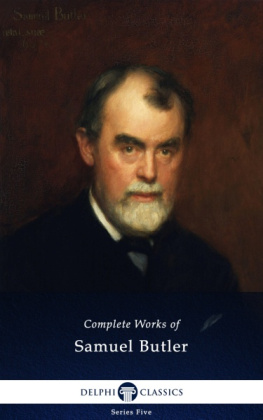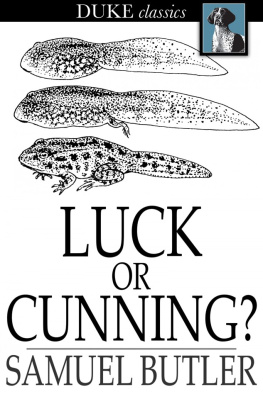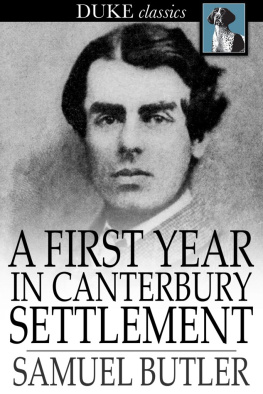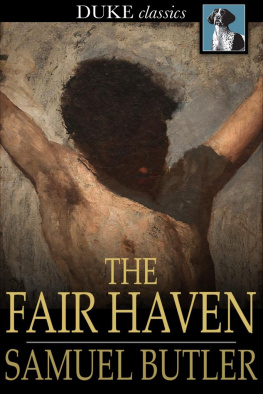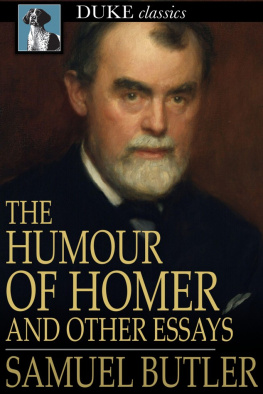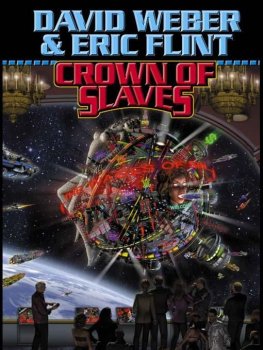Samuel Butler - Erewhon
Here you can read online Samuel Butler - Erewhon full text of the book (entire story) in english for free. Download pdf and epub, get meaning, cover and reviews about this ebook. year: 2007, publisher: Penguin Books Ltd, genre: Art. Description of the work, (preface) as well as reviews are available. Best literature library LitArk.com created for fans of good reading and offers a wide selection of genres:
Romance novel
Science fiction
Adventure
Detective
Science
History
Home and family
Prose
Art
Politics
Computer
Non-fiction
Religion
Business
Children
Humor
Choose a favorite category and find really read worthwhile books. Enjoy immersion in the world of imagination, feel the emotions of the characters or learn something new for yourself, make an fascinating discovery.

- Book:Erewhon
- Author:
- Publisher:Penguin Books Ltd
- Genre:
- Year:2007
- Rating:5 / 5
- Favourites:Add to favourites
- Your mark:
- 100
- 1
- 2
- 3
- 4
- 5
Erewhon: summary, description and annotation
We offer to read an annotation, description, summary or preface (depends on what the author of the book "Erewhon" wrote himself). If you haven't found the necessary information about the book — write in the comments, we will try to find it.
Erewhon — read online for free the complete book (whole text) full work
Below is the text of the book, divided by pages. System saving the place of the last page read, allows you to conveniently read the book "Erewhon" online for free, without having to search again every time where you left off. Put a bookmark, and you can go to the page where you finished reading at any time.
Font size:
Interval:
Bookmark:

EREWHON
SAMUEL BUTLER (18351902) was the son of a clergyman. He was educated at Shrewsbury and St Johns College Cambridge and, after a disagreement with his father about his choice of career, left England to become a sheep farmer in New Zealand, where he stayed until 1864. On his return to England, he took up residence in Cliffords Inn where he stayed until his death. He began to study painting and worked at it for ten years, exhibiting occasionally at the Royal Academy. In 1872 he anonymously published Erewhon which was based on the letters he wrote to his father from New Zealand. This was followed by The Fair Haven, an attack on the Resurrection, making clear the religious scepticism which had turned Butler against a career in the church.
In the years that followed, Butler wrote several works attacking contemporary scientific ideas, in particular Darwins theory of natural selection. In 1881 he began to write books on art and travel, the first of these being Alps and Sanctuaries of Piedmont and the Canton Ticino. Around this time, he was also experimenting with musical composition and collaborated with Festing Jones on the oratorio entitled Narcissus. An interest in Homer led him to write lively translations of The Iliad and The Odyssey and he formed the theory that these two works were written by a woman. Butlers partly autobiographical work The Way of All Flesh was the result of many years labour and appeared posthumously in 1903.
PETER MUDPORD is a reader in English at Birkbeck College, London University.
SAMUEL BUTLER
EREWHON
EDITED WITH
AN INTRODUCTION BY
PETER MUDFORD
PENGUIN BOOKS
PENGUIN BOOKS
Published by the Penguin Group
Penguin Books Ltd, 80 Strand, London WC2R 0RL, England
Penguin Putnam Inc., 375 Hudson Street, New York, New York 10014, USA
Penguin Books Australia Ltd, 250 Camberwell Road, Camberwell, Victoria 3124, Australia
Penguin Books Canada Ltd, 10 Alcorn Avenue, Toronto, Ontario, Canada M4V 3B2
Penguin Books India (P) Ltd, 11 Community Centre, Panchsheel Park, New Delhi 110 017, India
Penguin Books (NZ) Ltd, Cnr Rosedale and Airborne Roads, Albany, Auckland, New Zealand
Penguin Books (South Africa) (Pty) Ltd, 24 Sturdee Avenue, Rosebank 2196, South Africa
Penguin Books Ltd, Registered Offices: 80 Strand, London WC2R 0RL, England
www.penguin.com
First published 1872
First published in Penguin Books 1935
Published in the Penguin English Library 1970
Reprinted in Penguin Classics 1985
29
Introduction and notes copyright Peter Mudford, 1970
All rights reserved
Except in the United States of America, this book is sold subject to the condition that it shall not, by way of trade or otherwise, be lent, re-sold, hired out, or otherwise circulated without the publishers prior consent in any form of binding or cover other than that in which it is published and without a similar condition including this condition being imposed on the subsequent purchaser
EISBN: 9780141905044
CONTENTS
Erewhon has its place among those works of literature which in the absence of high imagination are preserved because they contain thought, freshness and originality. Butlers power as a debunker of emotional and religious hypocrisy projects itself through the faade of the conservative Englishman: a combination still capable of alienating and appealing to his readers. Paradoxical as a social figure, he is no less so as a stylist. Not sardonic enough to be the court-fool, he was too serious only to play the buffoon. In his practice of inverting as well as inventing epigrams he combined complaisance of tone with earnestness of intention, but both were used as weapons against the unthinking acceptance of ideas and attitudes, which Butler regarded as the arch-enemy in life, and the greatest insult the reader could pay to the writer. As his critics were quick to observe, he succeeded in alienating his public; but that was part of his idiosyncratic integrity, and provides a further reason for his survival. The case of Samuel Butler contains many oddities; but not the least is that this middle-class gentleman of independent means deeply influenced the thought of George Bernard Shaw, and developed a literary technique now associated with Bertolt Brecht.
Erewhon is not either in form or content a conventional novel. It originated in a series of articles which Butler wrote for the New Zealand paper, The Press, during his time as a sheep-farmer between the years of 1860 and 1864. His emigration was brought about by his decision not to follow his fathers footsteps into the Church, and his rejection of the other traditional careers which opened out from his education at Shrewsbury and Cambridge. The liberalization of his mind was hastened in New Zealand by his reading of Darwins Origin of Species, which had been published in 1859. This did not merely confirm his renunciation of the Christian religion in which he had been strictly brought up, but made him determined to spread what he saw as the new doctrine of evolution. Characteristically, he chose to do so in a light-hearted manner. The resulting articles, Darwin among the Machines, The Mechanical Creation, Lucubratio Ebria (a drunken lucubration), formed the basis of The Book of Machines in Erewhon when it came to be written some ten years later.
In the meanwhile he had sold his successful sheep-run and come back to England, where he attempted to train himself as a painter at Hatherleys Art School. His views on crime, religious hypocrisy and family life had also been formed, and persisted in engaging his attention. He had, it was clear, the makings of a collection of essays, conceived in his own fresh and satirical style. But he was still a long way from writing a novel which would demand cohesion and a talent for creating imaginary characters. He chose to solve the problem by setting his ideas in the context of the one fictional genre which was not rigorous in either respect the book of imaginary travels. The land of nowhere gave him the context to play with his ideas as he wished where a more serious anthology would have directed attention in quite the wrong way to their deliberate and sustained illogicalities.
Anyone who takes a look at A First Year in Canterbury Settlement, an account of Butlers first year in New Zealand, and then compares it with Erewhon, will begin to feel the distinctive way in which his mind works. Much in the first five chapters of Erewhon is derived from the landscape around Butlers sheep-run at Mesopotamia, and the route taken by Higgs into Erewhon is faithful to the actual landscape. In both, Butler demonstrates a keen and uncluttered eye for detailed observation, and the craft to evoke the feeling of a land in which the practical aims of the settler are tempered by a romantic appreciation of the lonely and the solemn. Lucidity in description goes hand in hand with evenness of narration, making a fine overture from these opening chapters of Erewhon. Disclosing none of the works major themes, it succeeds in compelling the reader to want to explore the mysterious land on the farther side of the mountains.
Once over the range, the evocation of English colonial life in New Zealand gives way abruptly to a landscape and people derived from Butlers love of Northern Italy, and the paintings of Giorgione, Bellini and Salvator Rosa. His use of discontinuity is at one level clever; it induces a sense of having arrived somewhere different; but it also dislocates, in this case, the readers involvement a weakness which Swift always succeeds in avoiding. The lack of sufficient artistry is unfortunately made more noticeable by the succeeding account of Higgss affair with his jailers daughter, Yram. Butlers writing is always especially impoverished when dealing with the relationships between men and women. His own fear of women caused perhaps an imaginative debility, and a distasteful attempt at titillation.
Font size:
Interval:
Bookmark:
Similar books «Erewhon»
Look at similar books to Erewhon. We have selected literature similar in name and meaning in the hope of providing readers with more options to find new, interesting, not yet read works.
Discussion, reviews of the book Erewhon and just readers' own opinions. Leave your comments, write what you think about the work, its meaning or the main characters. Specify what exactly you liked and what you didn't like, and why you think so.

